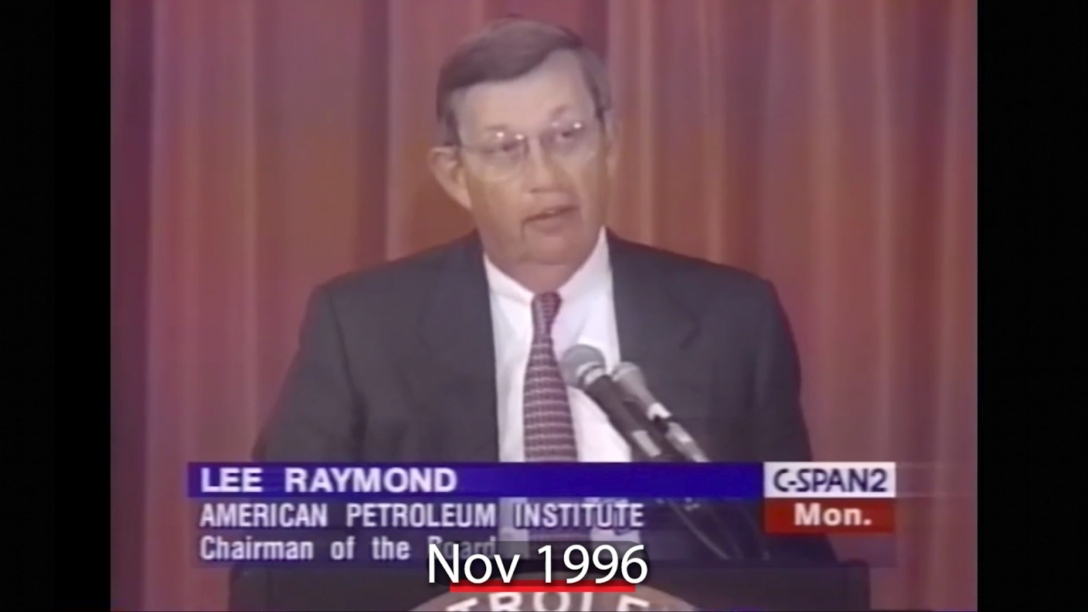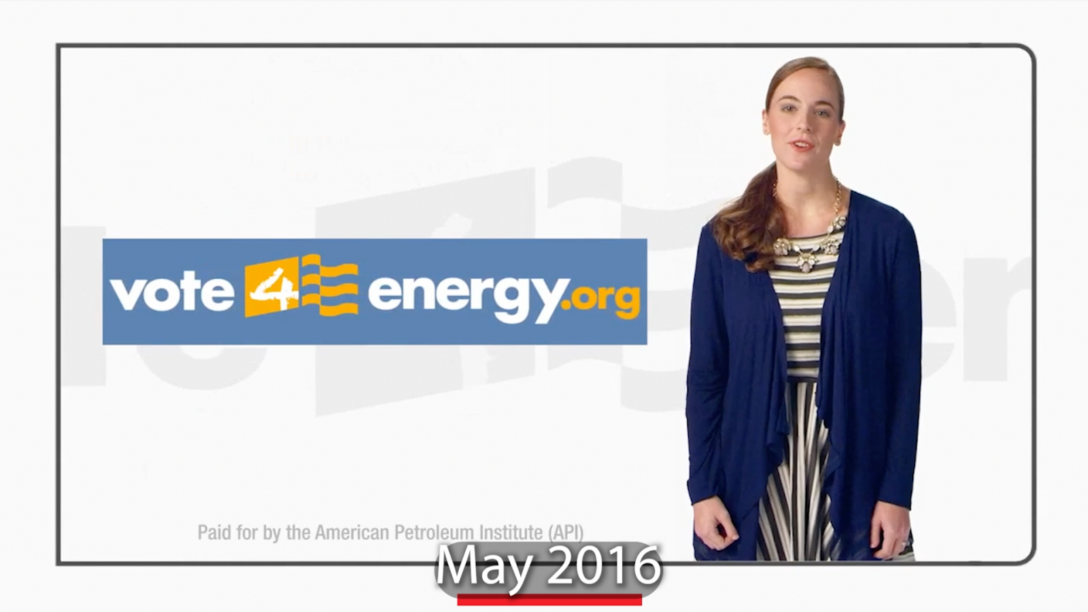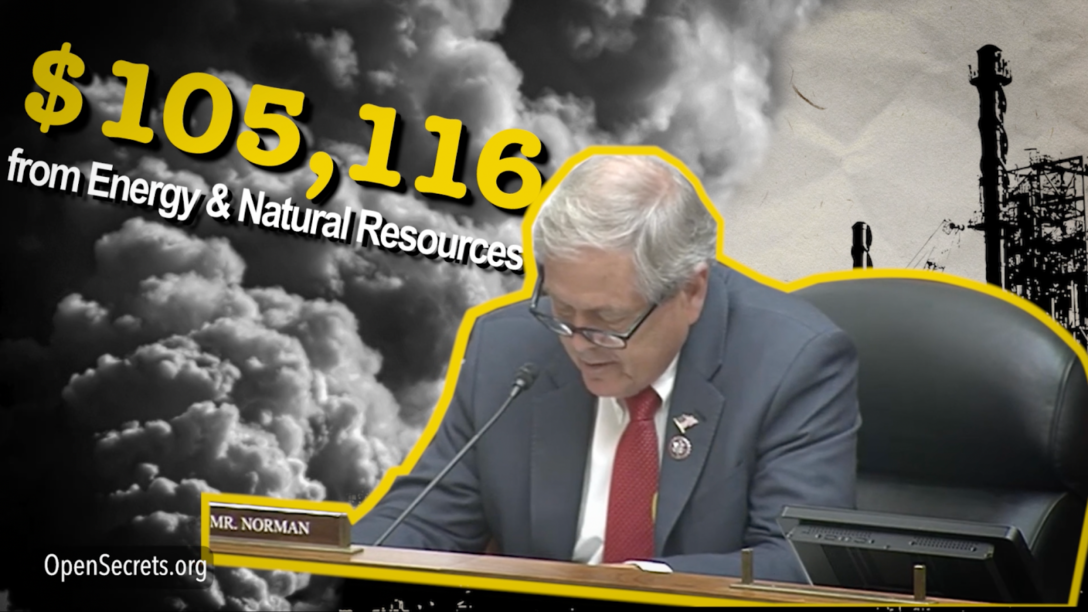Reporting by Amy Westervelt, Drilled
Popula is proud to join like-minded publishers at the new nonprofit independent media coalition at OptOut. Today, we’re joining forces with more than 20 fellow OptOut publishers to amplify this important story, one that only independent outlets can tell.
Who’s to blame for the lack of action on climate change?
The oil companies, most obviously;
 “There’s simply no reason to take drastic action now.”
“There’s simply no reason to take drastic action now.”PR and ad agencies, paid to hire chipper young adults urging viewers to become “energy voters”;
 “Energy! Environment! Some say it’s either/or… I don’t buy it.”
“Energy! Environment! Some say it’s either/or… I don’t buy it.”Politicians who carry water for the fossil fuel industry.
 Members…need to start focusing on the issues that are impacting everyday Americans, and the consequences of an overly ambitious and unrealistic climate agenda.”
Members…need to start focusing on the issues that are impacting everyday Americans, and the consequences of an overly ambitious and unrealistic climate agenda.”These are all easy to blame.
But without the complicity of corporate and legacy media, none of the fossil fuel industry’s propaganda would fly. Outlets including The New York Times, The Wall Street Journal, and The Washington Post have been allies of the fossil fuel industry for decades, not only running their ads but helping to create them.
Even now, when scientists say we’ve done irreversible damage to our planet, media giants are still unwilling to give up the fossil fuel dollars.
Creating ‘Issue Ads’ for Big Oil
When Mobil Oil and the Times teamed up to create the advertorial in the 1970s, their spin doctors admitted freely that the goal of the partnership was to “influence the influencers.” In fact, part of the original legal push for corporate personhood in the U.S. stems from those early Mobil campaigns.
Mobil invented what it called “issue advertising” or “advocacy advertising” in the late 1960s and early 1970s to deal with image problems not dissimilar to those they’re facing today—gas prices were high, profits were even higher, and an oil tanker had just dumped a large amount of oil on the lovely beaches of Santa Barbara, California. Access to trusted outlets such as The New York Times and the Los Angeles Times—which worked with Mobil to publish content that helped the company establish a friendly, responsible reputation—went a long way toward painting Mobil as a corporate “good guy.”
But in 1973, something unusual happened. Mobil’s PR department created TV versions of its print advertorials, and two commercial stations—CBS and ABC—declined to run them, explaining that the spots were propaganda, and that running them would be unethical and might even violate FCC regulations. Mobil execs saw this as the potential end of a strategy that had helped them win over not only the public, but also journalists and policymakers. The company launched a major offensive, placing op-eds in all the big papers, and sending flacks onto every TV and radio show to alert the public to the urgent need to protect corporate free speech rights. Mobil helped support the precursor to Citizens United (First National Bank of Boston v Bellotti), and fought hard for their right to continue using the media as their personal corporate PR machine.
They won, as you might have guessed, and oil companies today are making the same “corporate free speech” arguments to defend their right to mislead the public on climate change.
Amid Catastrophic Climate Change, It’s Still Happening
While there’s some momentum now toward accountability for the oil company polluters and their friends in corporate media, most legacy outlets are still taking the industry’s bait. The Post is still running pay-for-play op-eds from the American Petroleum Institute, which API spokespeople amplify as though they’re real articles, not just ads by another name. And when Russia began to invade Ukraine, American Petroleum Industry president Mike Sommers and Sempra Energy CEO Dan Broulette took to social media and cable TV to set the fossil fuel-friendly narrative: we need to ban Russian gas, we need to increase U.S. oil and gas production, and Biden’s climate policies raised prices at the pump.
Only a media system addicted to fossil fuel dollars would let these dangerously destructive industries control the climate crisis narrative in order to make even more money. Now that the bill for all those long and profitable years of media complicity is coming due—when we’re faced not only with heat waves and historic floods, but also with a U.S. government that seems less prepared to deal with the problem than ever, and a Supreme Court that also seems to have consumed a steady media diet of climate delay, we may question the wisdom of trusted media institutions that chose to take the check, year after year, and ignored their responsibility to accurately inform the public when there was still time.
This breach of trust affects every subject, not just climate. Should we believe coverage of wars that’s sponsored by the weapons industry? Should we trust Covid-19 reporting funded by Big Pharma?
Don’t we need media that is not in the pockets of the industries it’s supposed to be covering “objectively”?






